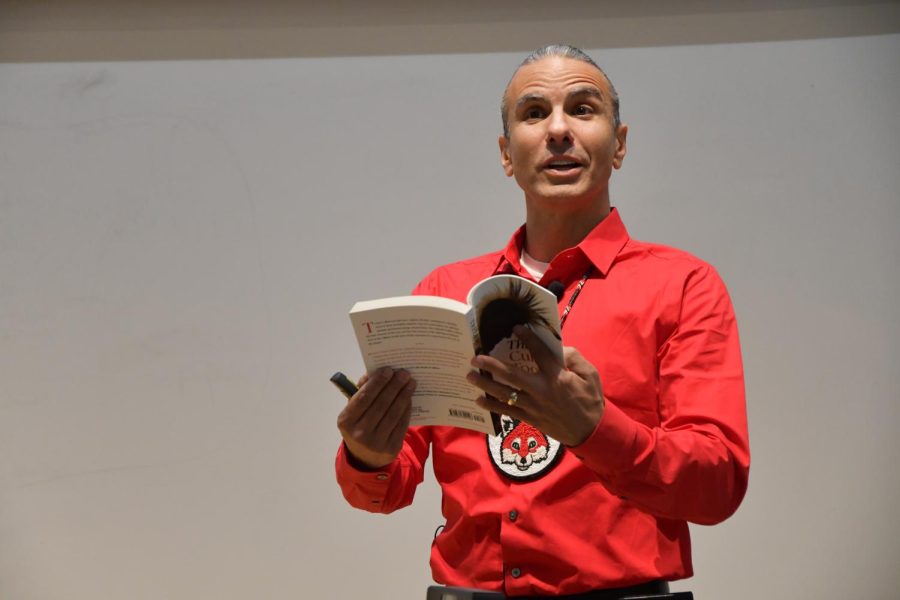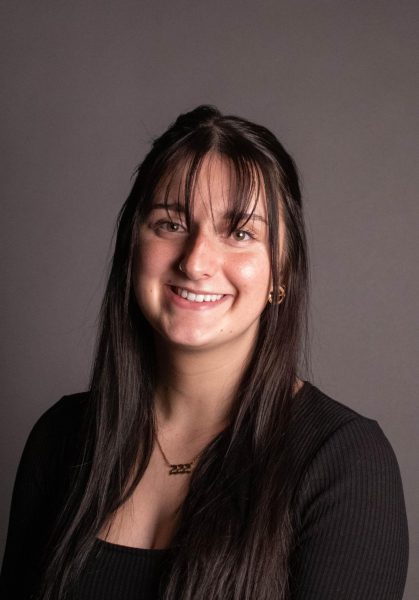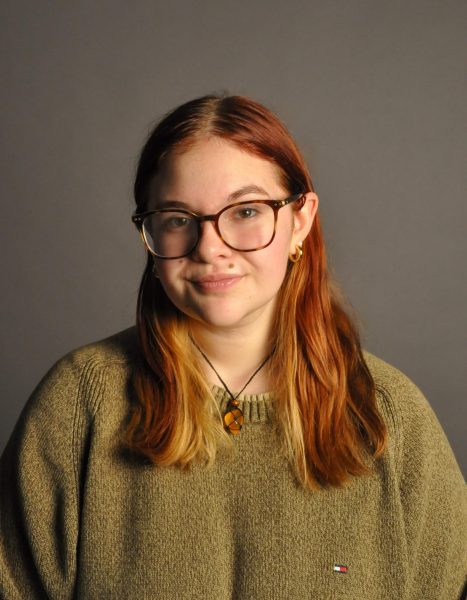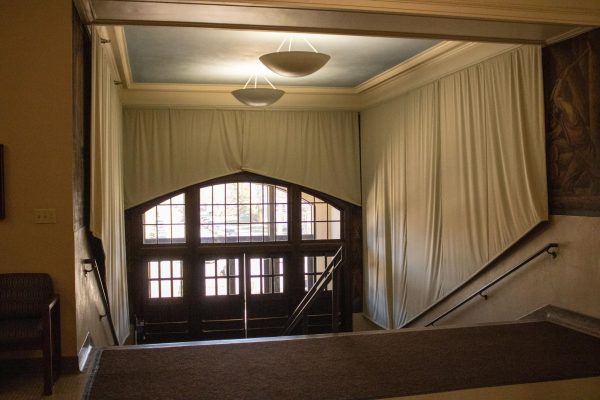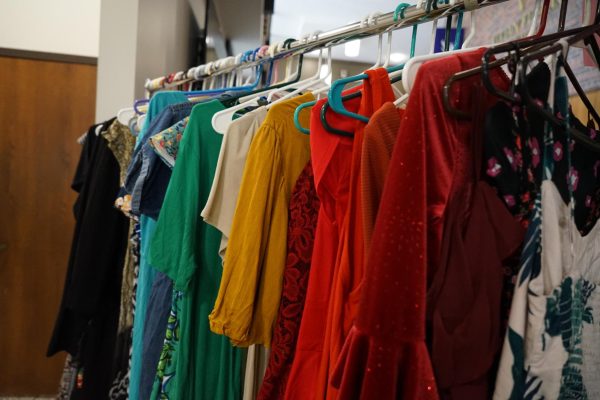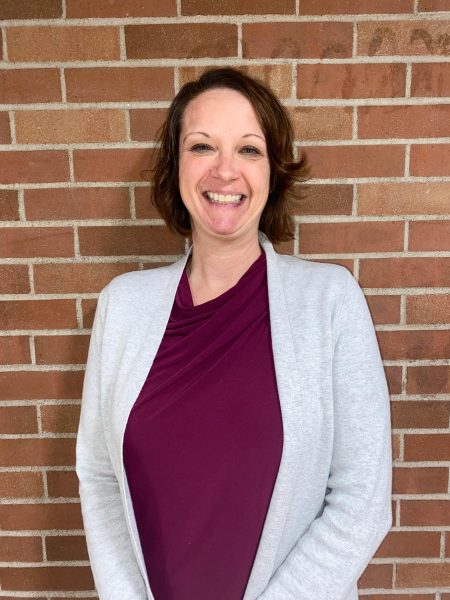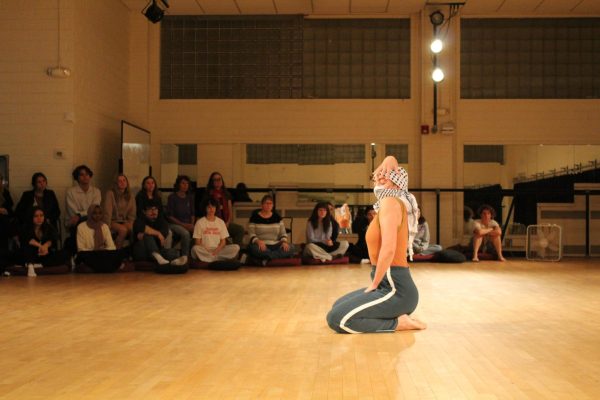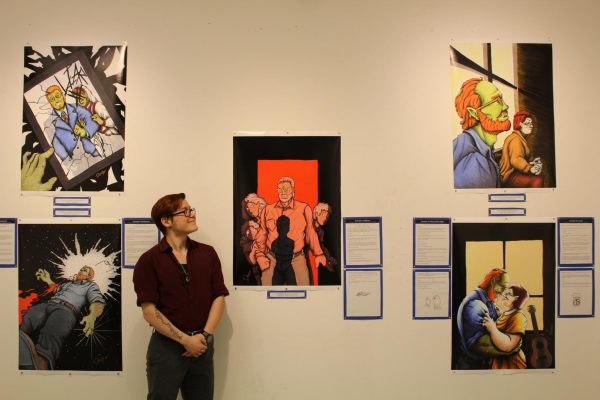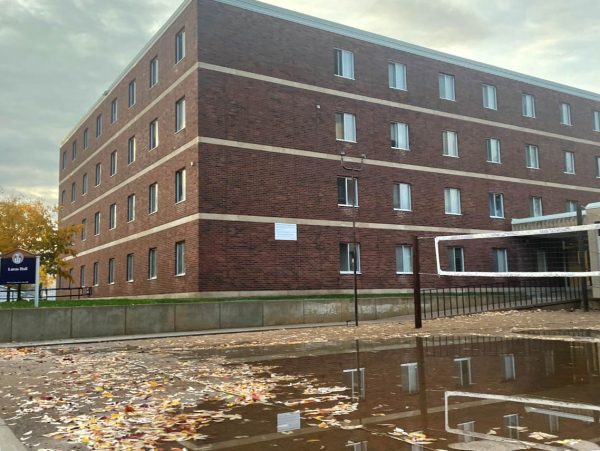Expanding Perspectives: Dr. Anton Treuer shares stories of traditional Ojibwe
Dr. Anton Treuer came and spoke about his experiences as a member of the eagle clan of the Ojibwe tribe. Treuer shared some powerful quotes that demonstrated the way he feels it is like to live in this modern world as a native person, while still staying true to his culture.
February 22, 2023
Dr. Anton Treuer told the stories of a traditional Ojibwe family to expand the perspectives of Winona State University’s students and staff on Wednesday, Feb. 15 in the Science Laboratory Center.
Dr. Anton Treuer is from the eagle clan of the Ojibwe tribe. Treuer’s Native name is Waagosh, which means “fox”. Treuer wore a Native beaded medallion with an image of a fox to represent his pride in his name. Treuer explained that he is from Leech Lake, which is one of the Ojibwe reservations in northern Minnesota.
Nahla Lee, the intercultural coordinator in the Office of Equity and Inclusive Excellence, introduced Dr. Anton Treuer, describing that Treuer received his BA from Princeton University and his Ph.D. from the University of Minnesota. Treuer is also the editor of the Oshkaabewis native journal, the only academic journal in the Ojibwe language.
Treuer began his discussion by speaking the Ojibwe language to introduce himself.
“They asked me to come and speak, they didn’t say anything at all about using a foreign language like English,” Treuer said, as he immediately gained the audience’s attention with his humor.
Treuer explained that he will be discussing a little about his latest book, “The Cultural Toolbox” and also a broad conversation about native languages and cultures. He also explained that he had a few disclaimers before getting into the discussion.
“I can only speak for myself,” Treuer said. “For my experience, I’m shaped by all the things about me, including my age, gender, where and how I grew up and all kinds of things and any other native person will necessarily have a different experience.”
Treuer went on to read a couple of pages from his book. He told stories and showed pictures of his young daughter and how his family incorporates the native lifestyle into their everyday lives.
“I tried to use a story to give people a window, not into how the culture is, but simply into how my family tries to live this culture in this modern world, knowing that other people will handle things a little bit differently,” Treuer said.
Treuer shared some powerful quotes that demonstrated the way he feels it is like to live in this modern world as a native person, while still staying true to his culture. It was also clear that he wanted the audience to be inspired by the things he was saying even if they did not necessarily relate to his culture.
“It can feel like we are less than if we don’t have everything that our ancestors had,” Treuer said. “You are not less than; in fact, you are a complete, fully realized human being. You are a soul who has a body… You’re not a human looking for a spiritual experience, you’re a spirit having a temporary human experience.”
As Treuer continued to share stories of his family and teach the audience about his culture, he expanded the audience’s knowledge on the importance of recognizing that we are all living on native land and that Indigenous peoples have been here for a very long time.
“There’s a tendency in America to say things like ‘We are all immigrants here.’ We are not a nation of immigrants. We are a nation with immigrants,” Treuer said.
Grahm Wibstad, a third-year social work major, shared what he thought was the most interesting thing that Treuer discussed.
“I think it was cool, the stuff he shared about his kids of how they’ve helped him learn different things about life and I think it’s interesting how he is kind of trying to keep his language up and going,” Wibstad said.
Wibstad described that he felt like he could now appreciate the living traditions of modern Ojibwe more after attending this event.
“I liked learning about the different ceremonies they still do like the first kill feast ceremony. We don’t really have anything like that in our culture like ceremony and initiation,” Wibstad said. “I feel like that is really powerful and something that we could benefit from implementing.”
Wibstad also explained how impressed he was with how good of a speaker Treuer was and how authentic he was with all of the stories he shared.
Nahla Lee shared that there will be two more expanding perspectives events this semester that are free to attend for those interested in learning more about different cultures in the BIPOC community.























































